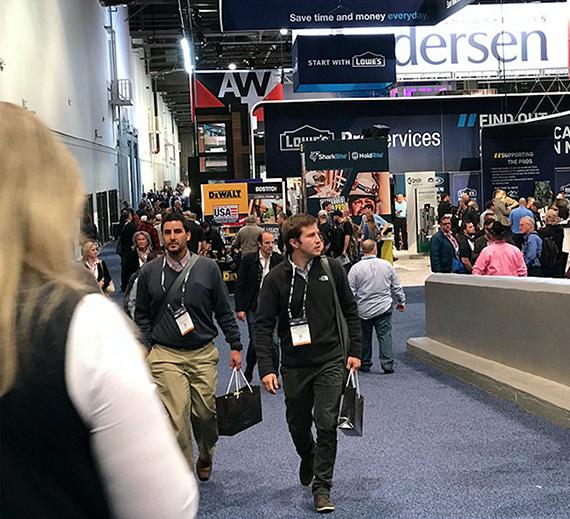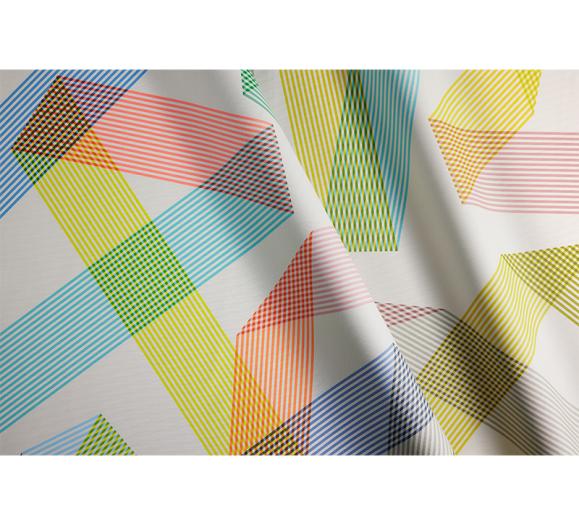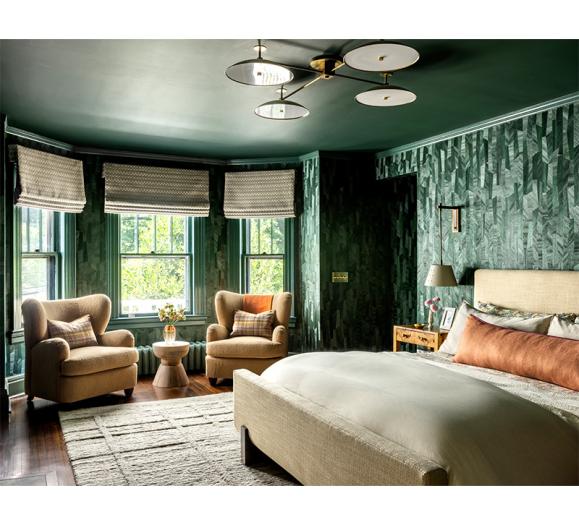It snowed in Las Vegas this week, and the Furniture, Lighting & Decor staff was there to witness it. Now we’ve seen everything!
That unusual event in Las Vegas, however, was overshadowed by KBIS/IBS (the Kitchen & Bath International Show and the International Builder’s Show), held at the Las Vegas Convention Center. The breadth of product available on this massive campus was a builder and designer Mecca — from the latest in smart faucets and showers to advances in lighting technology and design.
According to reports from the National Kitchen and Bath Association (NKBA) and the National Association of Home Builders (NAHB), attendance was approximately 30 percent higher than last year (more than 100,000 attendees). Exhibitors agreed that it was one of the strongest and best-attended KBIS/IBS shows in the last 10 years. Everywhere we visited — from the KBIS Salon and the Lightovation Lounge to Show Village 2019 — there were exciting innovations, informative seminars and networking galore. Not to mention North, Central and South Halls, where thousands of exhibitors showcased the latest kitchen and bath products, building materials, tools and finishes.
Trending: Black Is Back
At a show this size, every turn of the corner showcased trends, so here are a few highlights.
Black was on trend in kitchen and bath fixtures and lighting, with stunning matte finishes and black stainless steel introduced. Gold also continues to trend in fixtures as well but with warm tones.
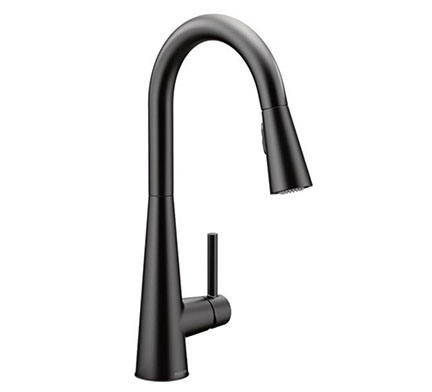
There were also an abundance mixed metals and mixed materials—such as metal with glass, metal with wood and more. Kohler seamlessly combined several metals in its new Ombre faucet that went from rose gold to warm gold to silver tones through a new firing technology. From a function perspective, the bar was also raised in water capabilities, including a shower that can be turned on via voice-enabled assistants or phone, and a tap that can provide cold, hot or boiling water. Smart Home is here.
In kitchen and bath surface materials, Quartz is still on the rise along with other manufactured materials, such as Silestone, providing a natural look with the durability of engineered products. Innovations included thinner materials for different applications and the ability to fold mitered corners for seamless design in cabinetry. A return to color alongside the reiging grays and natural finishes were also evident. Dark blues, greens and even reds were on display as a compliment to the more neutral tones.
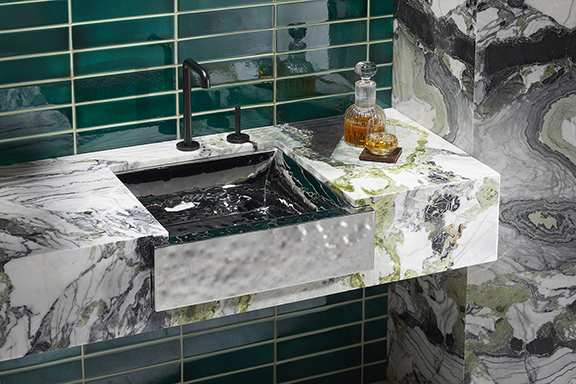
In lighting, we saw more mixed materials, clear glass and textured glass treatments, as well as LED technology designed for energy savings and ease of use.
“People are looking for contemporary, modern styling, but they still want something that hints toward nature,” said Levi Wilson, founder and vice president of design at Hammerton. The company, which has its manufacturing in Salt Lake City, UT, pairs LED lighting with metals, glass and organic styling.
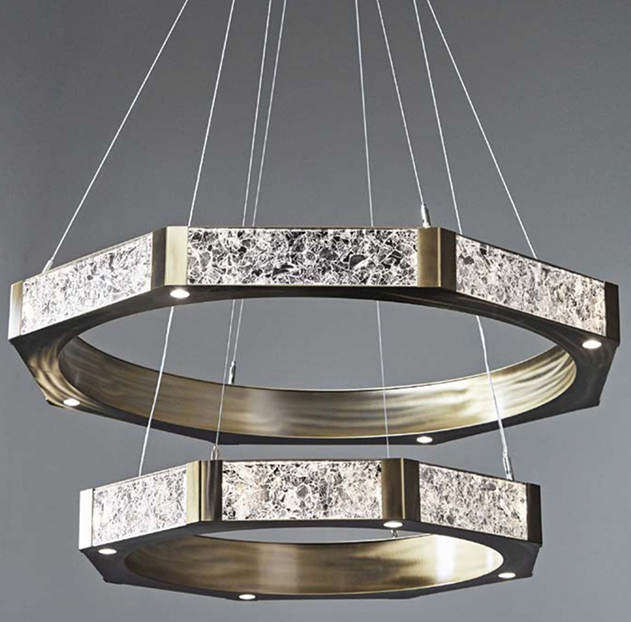
Top of Mind
What’s driving the trends we saw this year?
One of the more talked about issues at KBIS/IBS was that of aging, or living, in place. We saw a number of products devoted to making life more convenient for seniors who want to retain their independence.
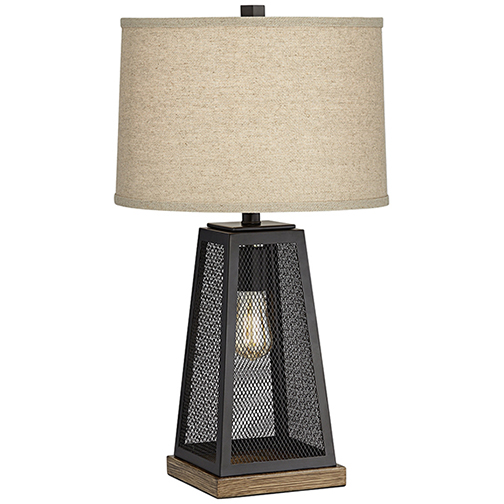
Consumers are also looking for furnishings and finishes that stand the test of time and are turning to hospitality influences in design. The terms “resimercial” and “resitality” are infiltrating designer vocabulary and were the topic of one of the many informative seminars around campus this show. Furniture, Lighting & Decor managing editor Alison Martin joined designers Elle Millard, Laura Muller and Jonathan Rachman to discuss the growing trend. The panel was hosted by Jamie Derringer of Design Milk and was part of the Design Milk X Modenus Talk Series at KBIS Salon. While commercial spaces (hotels, offices and restaurants, for example) are looking to bring in more home-focused design, consumers are also looking toward the materials and technologies used in hospitality spaces to create inviting, functional spaces for the home.
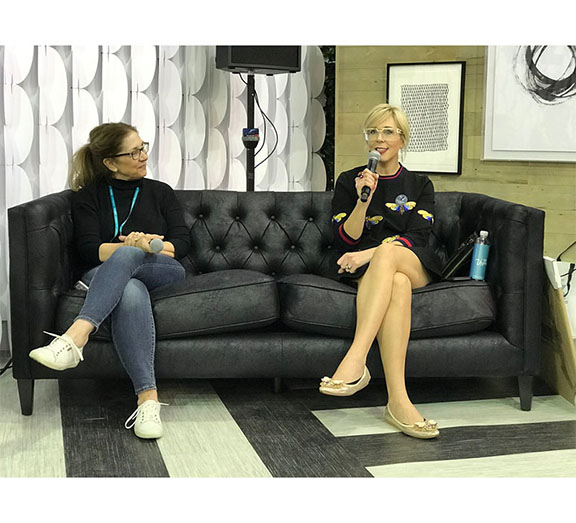
With social media showcasing this crossover trend, performance materials have become more design-worthy while giving consumers peace of mind. The key to blending residential and commercial design, according to Rachman, is educating the client as to practicality and work best in a given space. Smaller-space living, aging in place and designing spaces with income potential (thanks AirBnB) are just a few reasons we can expect to see more crossover between home and hospitality in the coming years.



